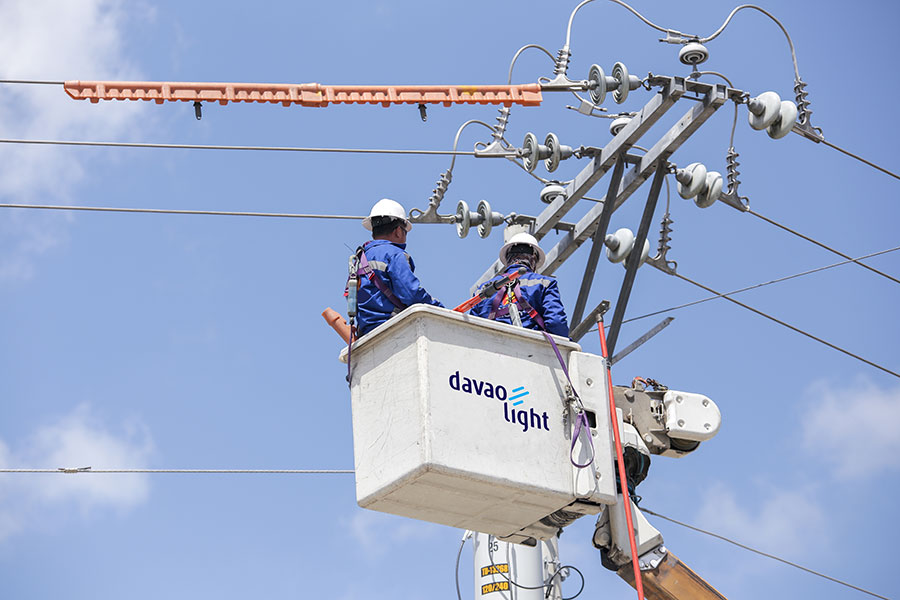This article by Aboitiz Renewables Inc. President and CEO James Villaroman first came out in the fifth edition of the Manila Times 500 and the Next 500 in July 2023. In it, he shares his thoughts on the importance of harnessing renewable energy resources and the challenges and opportunities associated with transitioning to a more sustainable energy system in the Philippines.
THE Philippines has an important, but differentiated, role to play in the energy transition. While it is endowed with natural resources that includes solar, wind and geothermal, Philippine stakeholders must nonetheless work hard to harness these to decarbonize the country’s energy system.
Renewable energy (RE) is not just a solution to reduce carbon intensity in the nation’s energy systems. It also addresses another critical issue facing the country: energy security. RE shields consumers from the volatile, global commodity price environment. It gives stakeholders the opportunity to create more predictability in energy pricing, which — in turn — will give businesses more confidence to grow and homeowners more confidence to spend.
The absence of buying fuel from foreign markets also means that the Philippine government would be able to strengthen its economic and geopolitical position in the region. A higher level of energy self-sufficiency means that Filipinos are less reliant on other countries and international politics.
Therefore, a transition to renewables should be a national imperative that contributes to global climate mitigation while also strengthening the government’s energy security posture.
Recognizing the importance of harnessing indigenous RE resources and increasing their share in the country's energy mix, the national government has set ambitious targets to achieve this goal. In 2019, the Department of Energy set a target of sourcing 35 percent of its energy from renewable sources by 2030 and 50 percent by 2040.
Many challenges need to be addressed to harness these resources effectively. These include the limited availability of power transmission infrastructure, the slow pace of processes and permits, the difficulty of securing affordable land and the increasing cost of capital. I would like to focus on the first two challenges mentioned here.
The limited availability of transmission infrastructure delays projects. Most RE projects are located in remote areas where natural resources are available or where the land is affordable. However, today, there is a lack of transmission infrastructure to bring power to where it is required. The construction of transmission lines can be costly and time-consuming, discouraging or delaying investment in renewables. This remains, arguably, the most considerable obstacle the renewables sector faces.
The complexity of the regulatory environment, the disaggregated processes and the lengthy permit application timelines also pose significant challenges to project developers. The country has a fragmented permitting system, and different agencies are responsible for granting such permits. This system can delay securing necessary permits, resulting in significant financial losses for project developers. While the government has addressed this through the Energy Virtual One-Stop Shop or EVOSS platform, there's still a long way to go.
In addition to these challenges, there is a need to incentivize serious developers. The industry needs stable and long-term investors willing to take on the risk associated with RE projects. The industry must maintain its momentum and ensure that investments are directed toward projects with long-term viability.
Collaboration among different role players is critical to solving problems and breaking through constraints. A successful and thriving renewables sector requires an ecosystem to nurture and support it. It requires new technologies, innovative ways and new capabilities to realize its full potential in the Philippines.
While solving these problems will take considerable effort and resources, the benefits are worth it. In addition to the benefits mentioned at the top of this article, expanding RE sources could create thousands of jobs and boost economic development. It could be a source of significant foreign direct investment and present opportunities for Filipinos to learn new skills and abilities with the influx of new technologies.
RE can help make the country more resilient to future shocks and economic downturns by creating new growth opportunities.
As industry stakeholders navigate the challenges and opportunities in RE development in the Philippines, it is important to recognize the energy transition and RE development as one of the critical solutions for a sustainable future.
And at the Aboitiz Group, this mindset is a testament to its unwavering dedication to building a better and brighter tomorrow for the Philippines. Let all work together to realize this vision for the benefit of the people, the nation and the planet.



